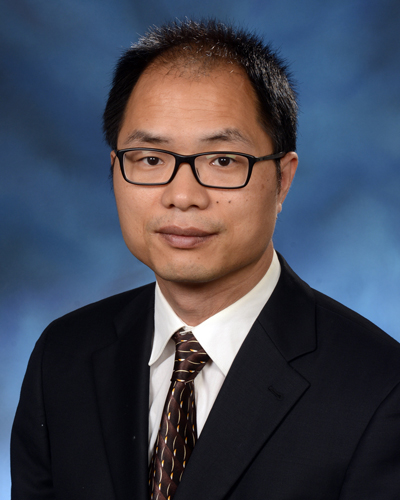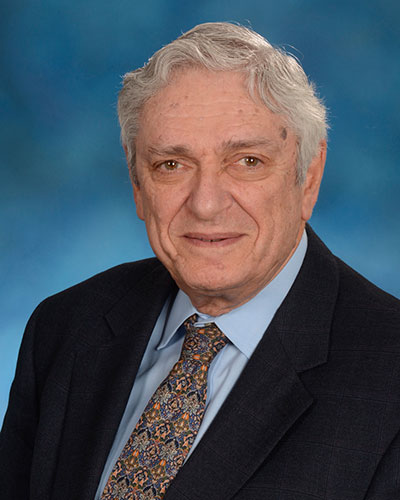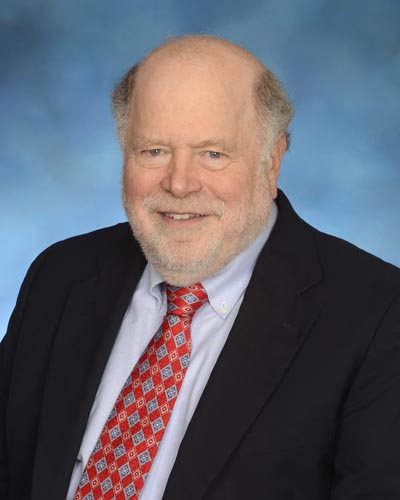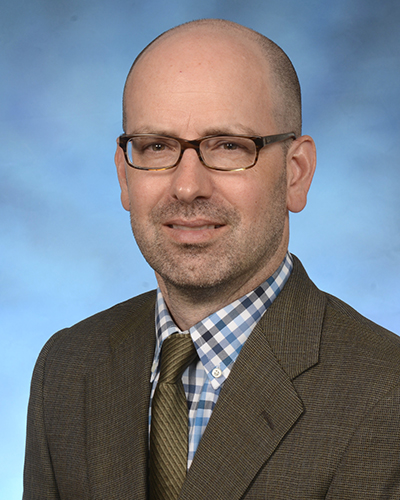Our faculty research efforts fall into three broad categories, Translational, Clinical and Data Science, but we work together to gain important new insights on cardiovascular biology and to translate our discoveries into future therapies.
Main Research Categories
Select a tab below to learn more.
Translational Research
Translational Research
Translational research in CVRL integrates basic science using animal models of disease with human translational research involving patient-derived genetic data, biomarkers and induced pluripotent stem cells (iPSCs), with the following broad goals:
- Elucidate new mechanisms for cardiovascular disease.
- Identify novel biomarkers of disease and therapeutic targets.
CVRL Investigators Conducting Translational Research
Primary Faculty

Zhekang Ying, PhD
Assistant Professor, Medicine
HSF II, S022
Phone: (410) 706-3586
Fax: (410) 706-3583
Email: zying@medicine.umaryland.edu
Research Interests:
Dr. Ying has over 12 years of research experience in cardiometabolic diseases including hypertension, type 2 diabetes, and atherosclerosis. Currently, his research is focused on the cardiometabolic effects of exposure to ambient particulate matter, which is funded by the National Institutes of Health (NIH). more >
Secondary Faculty

Mordecai P. Blaustein, MD
Physiology
Affiliate Faculty, Medical Biotechnology Center
655 W. Baltimore St. BRB 5-007A
Phone: (410) 706-3345
Fax: (410) 706-0274
Email: mblaustein@som.umaryland.edu
Research Interests:
Calcium ions play essential roles in most cellular activities, including fertilization, cell division, motility and contraction, excitability and secretion. Moreover, altered Ca2+ regulation and signaling play central roles in many pathological conditions. My current research concerns the regulation of the intracellular Ca2+ concentration and its role in normal and pathological cell signaling in vascular smooth muscle, with a focus on the pathogenesis of salt-dependent hypertension. more >

Aloke V. Finn, M.D.
Clinical Associate Professor, Medicine
Medical Director, CVPath Institute Inc.
Phone: (410) 328-7877
Mobile: (404) 291-7454
Emails: afinn@som.umaryland.edu, afinn@cvpath.org
Research Interests:
Major clinical interests include general and interventional cardiology. Major research interests are in the area of mechanisms of atherosclerosis progression. Experimental work focuses on the area of alternative macrophage activation in atherosclerosis with a particular interest the macrophage scavenger receptor CD163’s role in in angiogenesis and vascular permeability. Dr. Finn would be interested in fellows motivated to understand more about atherosclerosis and its origins or vascular intervention. A list of recent papers is available through Pubmed (Finn AV). more >

W. Jonathan Lederer, MD, PhD
Professor, Physiology
Director, Center For Biomedical Engineering & Technology
BioMET Building, 111 S. Penn Street, Suite 104
Phone: 410-706-8181
Fax: 410-510-1545
Email: jlederer@umaryland.edu
Research Interests:
As a principal investigator for over 35 years, Dr. Lederer has led his team to several key discoveries in calcium signaling, including the 1992 discovery of calcium sparks, the calcium signals in the heart that underlie all heart contractions, as well as all other muscles and excitable cells. Dr. Lederer’s discovery and subsequent study of calcium sparks has led to the development of a new area of research in local signaling events. more >

Associate Professor of Physiology
660 West Redwood St. HH 503
Phone: 410-706-5551
Email: mtrudeau@umaryland.edu
Research Interests
I was a graduate student at the University of Wisconsin-Madison with Dr. Gail Robertson from 1993-1998. While there, I characterized the molecular and biophysical properties of a voltage-gated ion channel (HERG) that plays a role in repolarization of the cardiac action potential. Mutations in this potassium channel gene are associated with an inherited cardiac arrhythmia (the Long QT syndrome). I was a postdoctoral fellow with Dr. Bill Zagotta at the University of Washington and Howard Hughes Medical Institute in Seattle from 1998 to 2004. My work there focused on the molecular physiology of cyclic nucleotide-gated (CNG) ion channels and their role in an inherited form of vision loss (retinitis pigmentosa) and the mechanism of their modulation by Ca2+-calmodulin.
Clinical Research
Clinical Research
Our patient-oriented research can be organized into Arrhythmia Research, Data Science, Clinical Trials/Registry Science, Image Based Research, Inhertied Heart Disease, and Quality Assessment/Health Services Research
CVRL Investigators Conducting Clinical Research
Arrhythmia Research
- Timm-Michael Dickfeld, MD, PhD Cardiac imaging (inclding cardiac MRI, metabolic & innervation imaging) to aid tachycardia ablation
- Alejandro Restrepo, MD Image integration, scar mapping to aid arrhythmia ablations, 3D printing for arrhythmia ablation
- Vincent Y. See, Jr., MD Impact of serum biomarkers of cardiac fibrosis and cardiometabolic disease on cardiac arrhythmia outcomes. Genetics of cardiac rhythm disorders in the Amish Research Program.
- Stephen R. Shorofsky, MD, PhD Mechanism and management of arrhythmias.
Medical Innovations/Digital Health Tech
- Scott D. Jerome, DO, FACC, FASNC, FSCCT Athletes health, Quality assurance, Electronic medical records, Data science, MAGIC smart home
- Jeff Rottman, MD Heart rate variability, Data science
Clinical Trials/ Registry Science
- Erika D. Feller, MD Medical and surgical treatment for patients with congestive heart failure. Cardiac transplantaion and mechanical circulatory support.
- Stephen S. Gottlieb, MD Clinical trials, Heart failure, Amyloidosis
- Michael Miller MD, FACC, FAHA Preventative cardiology, Clinical trials, Treatment of cardiometabolic diseases.
- Gautam V. Ramani, MD Advance heart failure, Pulmonary vascular disease, Pharmacotherapy for pulmonary arterial hypertension (PAH), Pharmacogenomics fo hydralazine/nitrate therapy.
- Shawn W. Robinson, MD Pharmacotherapy for heart failure, Genetic influencers of cardiac function.
- Van-Khue Ton, MD Advanced heart failure, Ventricular assist device (VAD), Pharmacotherapy for heart failure.
- Mark R. Vesely, MD Develpment of percutaneous mital valve techniques, Minimally invasive bypass surgery, Implementation of pharmacogenomics of clodipogrel metabolism.
Image Based Research
- Brian Barr, MD Cardio-oncology, imaging for evaluation of patients receiving oncologic therapies.
- Susie Hong-Zohlman, MD Caridac imaging, Infiltrative cardiomyopathy, hypertrophic cardiomyopathy, Pericardial disease, Myocarditis.
Inherited Heart Disease
- Stacy D. Fisher, MD Congenital heart disease, pregnancy and heart disease.
- Libin Wang, MD, PhD Predictors of sudden death risk in hypertrophic cardiomyopathy, Genetics of cardiovascular diseases.
Quality Assessment/ Health Services Research
- Anuj Gupta, MD Transaortic valve replacement (TAVR), Quality assurance (Maryland Academic Consortium for Percutaneous Coronary Intervention Appropriateness and Quality (MACPAQ)
- Stanley Liu, MD Quality improvements, Cardiac rehab 2.0, Healthcare delivery
- Mukta C. Srivastava, MD Optical coherence tomography, Quality/outcomes research
Data Science
Data Science Initiative
We have partnered with colleagues in the University of Maryland Baltimore County (UMBC) - Department of Mathematics and Statistics to utilize advanced Artificial Intelligence/Machine Learning as well as traditional methodologies to unravel and mine the welath of data generated in clinical trials, electronic health records, digital health devices, cardiac imaging studies and academic drug discovery efforts.
Faculty Involved in Data Science Initiative
